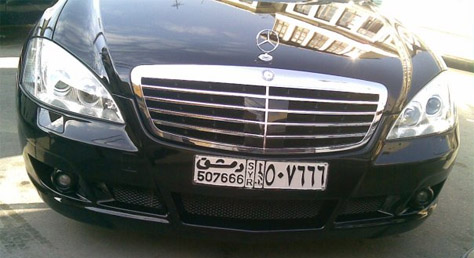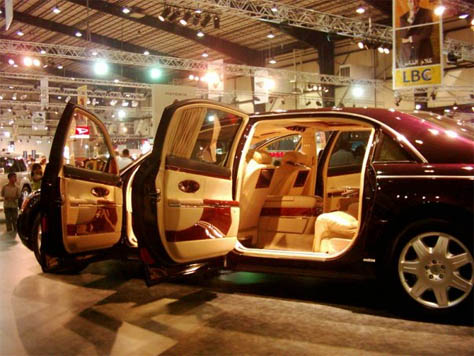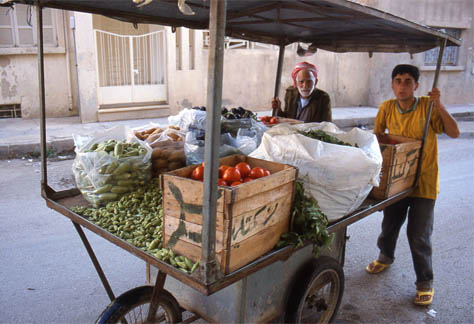Monday, December 24th, 2007
I have just returned from a short one-week trip to Syria. As you may recall, I had once written a note on this forum describing how Syria was made up of two countries: one for the one million well to do and another for the other 19 million. I will offer below a summary of my updated impressions since. My observations are predicated on list of what I consider to be five undeniable facts about the Syria that I saw.The first undeniable fact that I have encountered on this visit is the ever-widening gap between the poor and the wealthy of Syrian society. While this phenomenon has been in place for years, one cannot but take note of the recent acceleration in this trend. What makes this subject matter particularly interesting is the fact that Syria is still a supposedly socialist country. One would have thought that such excessive wealth concentration is the hallmark of more capitalist societies rather than Baathist ones. Perhaps the observation below can explain the reasons behind this process:
The second undeniable fact that one cannot ignore is the way with which Bashar is changing his father's long and heavy imprints on this country. For all practical purposes, Socialism is slowly but steadily being dismantled as an economic system. The new official title of course is "social market economy". The word "social" is presumably still there to assure the 19 million Syrians that they will still continue to receive their subsidized necessities and the most basic forms of state assistance. What is most noticeable, however, is the speed with which the "market economy" part of the new economic paradigm is spreading in the country. The new "Aishti" clothing store adjacent to the Four-Seasons hotel proudly advertises on its outside window the following:
Prada men's shoes – SYP 27,500
Brioni mens pants – SYP 22,000
Iceberg t-shirt – SYP 13,800
Armani dress for ladies – SYP 248,500
One cannot help but wonder how the late Hafez Assad would have reacted had he seen these prices displayed in his so-called Baathist capital
Syria's push for increased investments:
The country is abuzz with the latest wave of foreign and domestic investments. The leadership has done an outstanding job in this endeavor. Not a week passes by without an announcement of a new wave of investments from Qatar, Kuwait, U.A.E. or Saudi Arabia. Similar announcements seem to come from domestic investors in the new "holdings" companies that have been set up. Those that have already taken the risk of investing have thus far been handsomely rewarded by having seen the value of their investments in real estate (mostly still empty land) rise rather dramatically. This has encouraged more investments and a virtuous circle of higher prices and more investments to take place. The third undeniable fact is that there is no going back in this trend towards opening up the country to foreign investments and a more liberalized economy.



Whether this trend has been driven by political necessity or by genuine belief in the merits of free markets is an open question. My suspicion is that it is more likely to be the latter. It is important to note that the pace of the economic reforms is unlikely to go in overdrive mode. Instead, it will more likely be of the sure and steady variety. The already wealthy will get even richer while the poor will struggle with higher inflation and falling real wages.
The fourth undeniable fact is that the country's fiscal budget will continue to feel the stress in the years ahead. One cannot help but be struck by how little the very wealthy are taxed. It is imperative that this broken system receives a comprehensive overhaul. Similar taxation reforms are sorely needed in the real estate area. A major reassessment needs to take place in order to more accurately reflect the new market value of real estate pricing and hence taxes levied.
The fifth undeniable fact is that while economic reforms will continue, political reforms are unlikely to follow suit at anywhere near the same pace. This leadership appears to be extremely comfortable with its ability to hold on to power. The young leader appears to be in an absolute control of his country. Those that refuse to believe this are denying what seems to be the obvious. In this atmosphere, the pressure to offer political concessions is close to nil. The late Hafez Assad had built an incredible security apparatus that has come to resemble a fortress. It did not take the new President much time to fully appreciate the value of this intricate system that he had inherited. It seems inconceivable that he will take any risk in this area. Calls for political reform will be viewed as nothing but a trap and a slippery slope that must be avoided. Human rights advocates, for example, are likely to be sorely disappointed with the government's willingness to deliver.
Conclusion:
Bashar is steadily but slowly dismantling the old socialist nature of his father's reign. He is too clever and too cautious to do this on faster scale. He is fully aware of the economic challenges faced by the vast majority of his people. Given the need to grow the economy and fix his country's fiscal mess, opening the economy to foreign direct investments is a decision that is irreversible. The rich will continue to get richer in this environment. On the political front, Bashar is unlikely to loosen his grip and institute any significant reforms. Egypt has been down this before and it may well offer a similar model of more economic liberalism without the political reforms to match. Come to think of it, is the ultra successful economic model of Dubai any different?
No comments:
Post a Comment